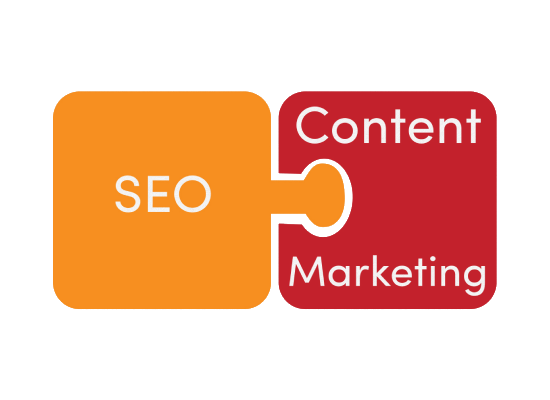eCommerce SEO Agency
If you are not showing up on the first page for thousands of keywords, you are leaving millions of dollars on the table!
Let our SEO Experts grow your organic traffic by an average of more than 300%.
(1) Great content
(2) Increased authority.
(3) Conversion Optimization
(4) ROI Focused SEO
Partner with Optimum7, an award-winning eCommerce SEO company, to increase your organic traffic and bring in more revenue! Our team will create a custom eCommerce seo strategy on-page and off-page SEO strategies built around optimizing your category and brand pages.
Contact Us or Request a Detailed Audit Today!

eCommerce REVENUE MANAGED ANNUALLY
1 Billion Dollars+

HAPPY CLIENTS
1,000 +

KEYWORDS ON PAGE 1 OF GOOGLE
100,000+

Featured in:





Our Process
Analysis & Audit
Get an in-depth inspection of your website from the highly-experienced professionals at Optimum7.
Keyword Research & Strategy
Our eCommerce SEO services are the perfect way to get your website on top of Google’s search engine results. We analyze every detail that you need, including competitor analysis and keyword research.
Monitoring & Optimization
As an eCommerce SEO company, we monitor your organic traffic of your pages and adjust our customer base strategy accordingly. eCommerce SEO is a process that requires diligent tracking.
What is eCommerce SEO Services?
Search Engine Optimization (SEO) is the ongoing process of improving the visibility of a website, an online store or a web page in the organic search engine results presented in Google and other search engines.
eCommerce SEO strategies focus on growing what is known as organic traffic, which refers to traffic achieved through search engines rather than paid advertisements. Organic traffic is widely considered much more valuable than paid traffic as organic traffic is overall proven to more likely result in a conversion.
Today’s consumers are much more sophisticated than ever before. Whether we realize it or not, experts have estimated that the average American is exposed to 5,000 ads per day. Marketers have found that traditional advertisement is seen by consumers as intrusive, interrupting their daily lives with an attempt to sell.
SEO (Search Engine Optimization), SEO campaigns, and long-term marketing strategies change the nature of the relationship between advertisers and consumers. With eCommerce SEO strategies, users are seeking out your products or services and asking questions related to your niche. Then you provide them with valuable information. The user trusts this information because they found it with their own market research.
eCommerce SEO services can be broken down into two separate categories: on-site optimizations and off-site optimizations.
On-site eCommerce SEO optimizations refer to changes you make to your site which makes Google’s algorithm friendly. This includes optimizing page titles, title tags, and meta descriptions, content creation, page load speed, internal link structure, mobile-friendliness, microdata, and more.
Off-site eCommerce SEO refers primarily to increasing authority from other websites and social media channels via backlinks and brand mentions.
Need an SEO Strategy for 2022?
Call us at 866-848-6072
eCommerce SEO and Digital Marketing Services We Offer
Local eCommerce SEO
Local SEO is a strategy that targets a specific geographic area. If you’re a business that only offers products or services within a certain radius, Local SEO, one of the most effective eCommerce SEO services may be right for you.
eCommerce SEO Website Audits
As an experienced eCommerce SEO agency, we perform a site audit and dive deep into your site architecture to discover opportunities to optimize your content and increase the organic search visibility for both short and long-tail keywords.
Link Building
Links from other websites are one of the primary factors Google and other search engines take into account when determining rankings. Acquiring these links is one of the biggest challenges a marketer faces when performing an SEO link-building campaign.
Mobile SEO Optimization
Over 50% of all web traffic is on mobile devices, and that number is expected to grow. Google has taken notice and if your website or online store isn’t optimized for mobile devices, your organic traffic will suffer.
Technical eCommerce SEO Services
Technical SEO refers to changes you can make to a site’s code or structure to help search engine spiders crawl the pages on your site and index your content. Additionally, technical eCommerce SEO services consists of optimizing the metadata on your site that will help increase your visibility and click-through rate on search engines.
Content Creation
Content is the engine that powers eCommerce SEO. Our digital marketing specialists do keyword research and identify the target keywords you need to start ranking for on search engines. The days of keyword stuffing are long gone! Our copywriters, strategists, designers, and videographers ensure your content is unique, high-quality, and gets seen by your customers.
What Our Customers are Saying



FAQ
What is better for eCommerce; PPC or SEO?
SEO (Search Engine Optimization) and PPC (pay-per-click) can both be effective for different purposes. Pay-per-click (PPC) is great for short-term, immediate results and SEO is more of a long-term digital marketing strategy and has longer-lasting results.
However, if you invest only in PPC and when a lead goes to your website and it isn’t optimized, their user experience may very well turn them off. Then they will not convert. Your site should be optimized before you start a PPC campaign.
PPC campaigns are very helpful. However, because it is proactive and you are putting your ad in front of the narrow audience sector your company has chosen. In contrast, with long-term SEO strategies, a more general audience has an easier time finding you.
Note on pricing: keep in mind that depending on the keywords you choose, your costs can be startling high with a PPC campaign, so do keyword research deeply and choose the keywords you bid on wisely. eCommerce SEO services are not free. However, it will help the longevity of your website, which is vital to eCommerce businesses.
How is Domain Authority related to eCommerce SEO?
For your website to become the “go-to” site in your particular field or product is any businesses’ dream, but this DA (relevance to specific keywords or industries) is grown organically and is tough to establish.
At Optimum7 we do this through publishing quantities of valuable content, such as blog posts, videos, and more, on a weekly basis.
Did you know you only have 2.5 seconds to impress potential clients before they will leave a website?
As an very experienced eCommerce SEO agency, we answer potential clients’ questions immediately, clearly, and in an easy-to-digest format.
Once we have built that big pool of valuable information, videos, or entertainment for your website, your website will start to establish DA in your field.
What is an “organic” eCommerce strategy, search, followers or traffic?
Organic simply means it wasn’t paid for.
It can be as traditional and innocuous as getting traffic through a paid ad. Statistics will not reflect this as “organic traffic,” however, which is the desirable statistic when considering placing an ad on a site or sponsorship.
Entities can also purchase followers for their social media accounts, monetarily incentivize traffic to their site, etc. For various reasons, explained below, this is a less desirable practice.
To get organic traffic, followers and be found in an “organic search,” you should employ an SEO strategy.
What should eCommerce SEO (Search Engine Optimization) cost per month?
SEO services that are offered by a leading SEO company are not cheap. There are a lot of details and intricacies in delivering eCommerce SEO services such as copywriting, DA building, conversion rate optimization, and more.
Local SEO services should cost between $1,000 – $2,000 a month and national SEO services that are offered by a national eCommerce SEO agency with more competitive terms should cost $2,500 – $20,000 a month based on resources necessary.
Average eCommerce SEO services cost $5,000 per month. This cost will increase if you are in a competitive industry such as electronics, vaping, healthcare, or similar.
How much should I spend on eCommerce SEO services?
In reality, most people ask the wrong question. The right question is “How much should I NOT spend on SEO monthly?”
You are wasting your money and resources if you spend less than $1,000 a month on eCommerce SEO. An exclusive eCommerce SEO strategy in the USA costs an average of $5,000 a month. Copywriting, content structure, and authority building (backlinking) should be included in this cost.
Is eCommerce SEO worth the money?
It all depends on how the service is executed. eCommerce SEO is a long-term strategy and should never be analyzed in under 6 months. However, logical KPIs and objectives should be set such as an increase in organic traffic, keyword universe ranking, and more.
If executed right, SEO can be a gold mine for businesses to increase revenue and bottom line.
How can I trust an eCommerce SEO Agency?
SEO services are just like any other service. You might have a lawyer that you trust or a doctor that takes care of your family. Ideally, you want to find a digital marketing agency who makes sense and has your best interest at heart. This person does not BS you and tells you what you need to know, and not what you want to hear.
It’s a business decision! The only thing you cannot afford to do is lose the edge to your competitors.
eCommerce SEO (Search Engine Optimization) Audits: How to Audit Your eCommerce Site’s Content Strategy
When it comes to eCommerce SEO services and content audits respectively, they are actually different. We’ve had clients in the past few months who have tens of thousands of products. They came to us and we migrated them. They have good visibility but have never optimized their product descriptions, category descriptions, or content hierarchy. Why is it important to do an audit before you actually start executing eCommerce SEO content, or digital marketing strategies?
Importance of Auditing Your eCommerce Website’s SEO and Content Hierarchy
Look at this if you’re going to execute a migration as well because you don’t want to start off with problems and end with problems. Conduct an audit before you start to migrate, or execute an eCommerce SEO strategy. Break everything down and look at your content hierarchy.
Why are you doing this before the migration process?
There’s no point in fixing something that’s already broken after you go through all the work of migrating. Once you finally migrate, because you’re going to have to do 301 redirects. So why not fix the content hierarchy and URL structure and breakdown of all your categories prior, if you know that you’re going to have to execute the 301 redirects anyway?
Are you thinking about doing any kind of migration or re-platforming from one eCommerce platform to another platform? Then you need to significantly review your content structure and hierarchy, as well as your category and product structure respectively. That’s the best time for you to review all of that.
As you are doing the migration, it will be more efficient. Once you’re done with that analysis and optimization, your new site is going to have a better structure. Despite that, many people don’t do the difficult stuff, which is writing unique titles and descriptions, meta titles, meta descriptions, and unique product descriptions. This is going to differentiate your website, eCommerce store and brand from that of all of your competitors significantly.
Our Tools for Starting Your eCommerce SEO Content Audit
Let’s say we looked at all of this before the migration process. Which elements do you review?
Use tools such as Google Analytics to now prioritize what categories you should strongly focus on. If you don’t have GA set up, do that now. In order to do that, you can work with an experienced SEO partner. Data is crucial here; without data, you can’t really move forward. Start generating that data before you come to any conclusion as to how your site should be structured.

Break it down. Which products or which categories are getting the most organic visibility, especially products within categories? From a revenue standpoint, which outputs and categories generate the most cash flow?
The answer is the top sellers. Now you can prioritize this structured content. If this one category is my bread and butter and these five outputs within there are my top sellers, I need to make sure that throughout this migration process or eCommerce SEO content strategy process that I am focusing on this category and these outputs within it.
After this, optimize that category structure and those product pages. Then go down the list and repeat. Prioritize in that manner. To do page optimization, you need Google Analytics data.
How We Audit an eCommerce Website with 1 Million+ SKUs: Prioritizing Category and Product Pages
This is easy to do for several hundred products, but if you have tens of thousands or even millions of SKUs, how do you do this prioritization?
As an SEO agency, we do a very basic Excel formula: a specific score and a weight on every single page, including outputs and categories. Then we take all of that data through five sources. As a very experienced eCommerce SEO partner, we grab Google Analytics, Google Search Console, SEMRush, and the keyword rankings.
Our data comes from page authorities for both product pages and category pages from SEMrush. We also grab all the backlinks from Ahrefs and Moz. Then we combine the information and create a scoring structure.
Let’s say you have a hundred categories, each with a thousand products. Here are your most important product page and categories respectively. Look at your categories on outputs that get less than twenty traffic. You’re actually diluting your entire site authority, and you don’t want to do that.
As an expert SEO agency, how do we do the cleanup?
That is a good question. People love having tens of thousands of products on their sites. Our job is to say, “You got to lose 50% of these outputs.”
Review your top pages, top products, traffic drivers, and revenue drivers. You have a segment that we call the lowest-hanging fruit. They are the pages that have the potential to jump into that first segment. But right now they’re just off page one.
That could happen due to thin content, or no backlinks. Identify those as well. That last segment is really just insignificant pages that are bringing you down. They weigh down and dilute your authority.
Decide whether you’re going to cure or kill those pages. It’s tough for many clients when you tell them, “We’re going to cut your product offering, by a third.”
“What do you mean?” they ask
“These products have never sold.”
Identify parameters to justify this claim. Point out that these outputs have never driven any traffic. There’s no real significance or value in having them on your site. Thus, you don’t want to dilute your authority by having 25,000 or 75,000 URLs that don’t get any traffic.
Ask the following: “Do I kill or delete the pages completely? Or are some of these somewhat significant that I can redirect them to other relatable pages?”
The first step is to do an audit, because there are many details, especially on a site that has tens of thousands of products. Break down and prioritize the outputs. We suggest doing a deep eCommerce SEO/content audit first.
This audit addresses all of the lowest-hanging fruit: the closest keywords, or the closest search engine rankings opportunities, or sales opportunities that you have, as well as your best sellers.
Refining Your eCommerce SEO Content Marketing
You will be on the first page, but the difference between the
 number one position and number nine position on the first page could be three, four, or six X traffic. Many people don’t understand that.
number one position and number nine position on the first page could be three, four, or six X traffic. Many people don’t understand that.
It’s incredibly important that you do an eCommerce SEO, Facebook page search, or AdWords audit before you actually engage with an eCommerce SEO company or SEO experts to do your marketing.
Digital Marketing Partner and Marketing Strategy
If you don’t get an audit or statement of work, you don’t know your key performance indicators or KPIs.
In addition, you don’t know how you judge, or how you rate that service that you’re getting from a marketing standpoint.
If an SEO agency is doing SEO campaign for a couple of months, but you don’t know how to really gauge their success, or gauge their results.
Do an audit first before you engage in an internet marketing partner and SEO campaign.
To recap: in this audit, we look at the eCommerce websites and platform and its content structure. These include content hierarchy and integrated marketing. We actually have a checklist with close to 140 different items and elements to review.
As an Expert eCommerce SEO Agency, How We Audit Your eCommerce Website for Conversion Optimization
After reviewing, our eCommerce SEO experts break down your website and look at the moneymakers. The bottom line is the most important quality. Then we do a six-month strategy for your conversion optimization and your brand to basically take you from A to B.
The A to B could be revenue, visibility, or leads from phone calls. It depends on those established KPIs. From there, you can review that six-month strategy and evaluate if those KPIs are aligned with your brand or organization’s objectives.
Is Your eCommerce store in Bad Shape?
Need Help Conducting an eCommerce SEO Audit?
eCommerce SEO to Thrive.
No matter which way you go around it, you’ll need an eCommerce SEO strategy with specific know-how for your business to get visible and thrive. Start building your online authority now.